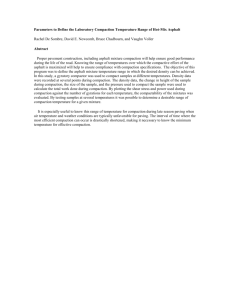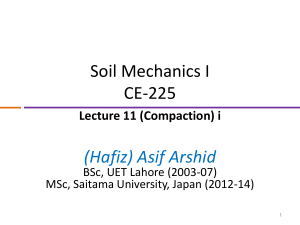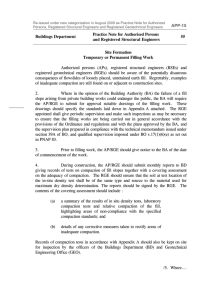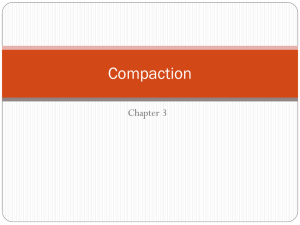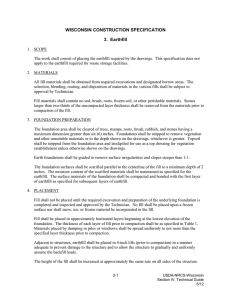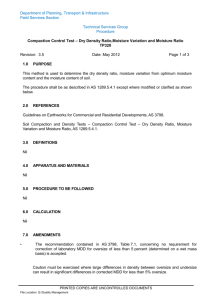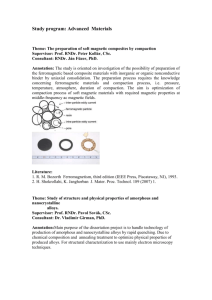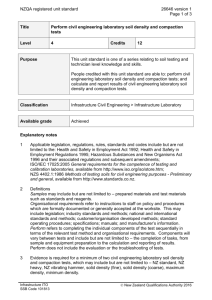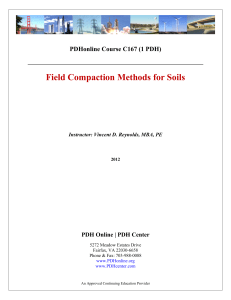TP102 - Department of Planning, Transport and Infrastructure
advertisement
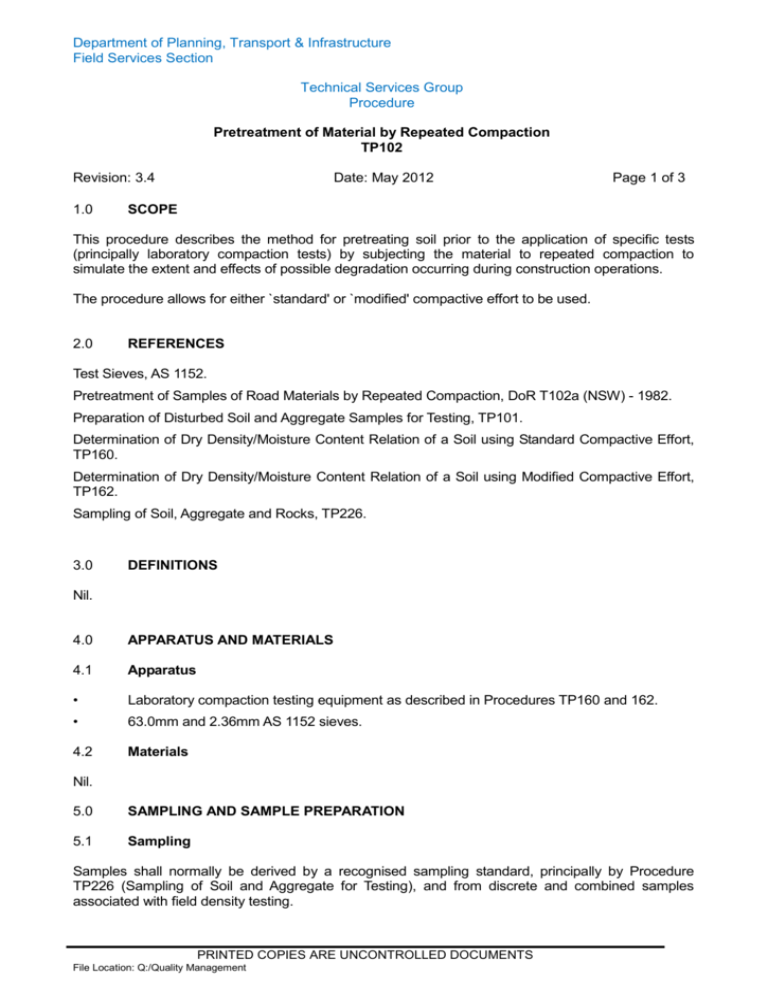
Department of Planning, Transport & Infrastructure Field Services Section Technical Services Group Procedure Pretreatment of Material by Repeated Compaction TP102 Revision: 3.4 1.0 Date: May 2012 Page 1 of 3 SCOPE This procedure describes the method for pretreating soil prior to the application of specific tests (principally laboratory compaction tests) by subjecting the material to repeated compaction to simulate the extent and effects of possible degradation occurring during construction operations. The procedure allows for either `standard' or `modified' compactive effort to be used. 2.0 REFERENCES Test Sieves, AS 1152. Pretreatment of Samples of Road Materials by Repeated Compaction, DoR T102a (NSW) - 1982. Preparation of Disturbed Soil and Aggregate Samples for Testing, TP101. Determination of Dry Density/Moisture Content Relation of a Soil using Standard Compactive Effort, TP160. Determination of Dry Density/Moisture Content Relation of a Soil using Modified Compactive Effort, TP162. Sampling of Soil, Aggregate and Rocks, TP226. 3.0 DEFINITIONS Nil. 4.0 APPARATUS AND MATERIALS 4.1 Apparatus • Laboratory compaction testing equipment as described in Procedures TP160 and 162. • 63.0mm and 2.36mm AS 1152 sieves. 4.2 Materials Nil. 5.0 SAMPLING AND SAMPLE PREPARATION 5.1 Sampling Samples shall normally be derived by a recognised sampling standard, principally by Procedure TP226 (Sampling of Soil and Aggregate for Testing), and from discrete and combined samples associated with field density testing. PRINTED COPIES ARE UNCONTROLLED DOCUMENTS File Location: Q:/Quality Management Department of Planning, Transport & Infrastructure Field Services Section Technical Services Group Procedure Pretreatment of Material by Repeated Compaction TP102 Revision: 3.4 5.2 Date: May 2012 Page 2 of 3 Sample Preparation Preparation shall normally be by the application of Procedure TP101 (Preparation of Disturbed Soil and Aggregate Samples for Testing). However samples need not be dried if submitted at moisture contents at or below approximate optimum moisture content. Sufficient mass of material shall be prepared to provide amounts suitable for further testing needs (post pretreatment). 6.0 PROCEDURE TO BE FOLLOWED 6.1 Thoroughly mix the sample and cure with a moisture content approximating optimum (this may be estimated). Curing time may be as little as 0.5 h for crushed materials. Divide the sample into representative portions, each sufficient to provide a compaction point appropriate with the mould size and compactive effort to be used (this may be performed prior to moisture addition and curing if desired). 6.2 For crushed rock samples: • Apply the chosen compactive effort (either 596 or 2 703 kJ/m3). • With care to avoid loss of material, demould and repeat the compaction process until sample has been subjected to five compaction cycles. • Dry, remix and prepare the sample, as appropriate, to further testing requirements. 6.3 For other samples: • Screen on 63 mm sieve, break down any particles retained to pass 63 mm, add to -63 mm material and remix. • Apply the chosen compactive effort (either 596 or 2 703 kJ/m3). • With care to avoid loss of material, demould, screen over 2.36 mm sieve and approximate percentage of sample -2.36 mm. • Repeat the compaction process until the sample has been subjected to six compaction cycles or until more than 30% of the sample passes the 2.36 mm sieve, whichever occurs first. • Dry, remix and prepare the sample, as appropriate, to further testing requirements. 7.0 CALCULATIONS Nil. PRINTED COPIES ARE UNCONTROLLED DOCUMENTS File Location: Q:/Quality Management the establish Department of Planning, Transport & Infrastructure Field Services Section Technical Services Group Procedure Pretreatment of Material by Repeated Compaction TP102 Revision: 3.4 8.0 Date: May 2012 PRECISION No precision data available at this time. 9.0 REPORTS AND DOCUMENTATION 9.1 Reports Report: • Type of compactive effort applied (as ‘standard' or ‘modified'). • Number of compaction cycles performed. 9.2 Documentation Nil. PRINTED COPIES ARE UNCONTROLLED DOCUMENTS File Location: Q:/Quality Management Page 3 of 3

